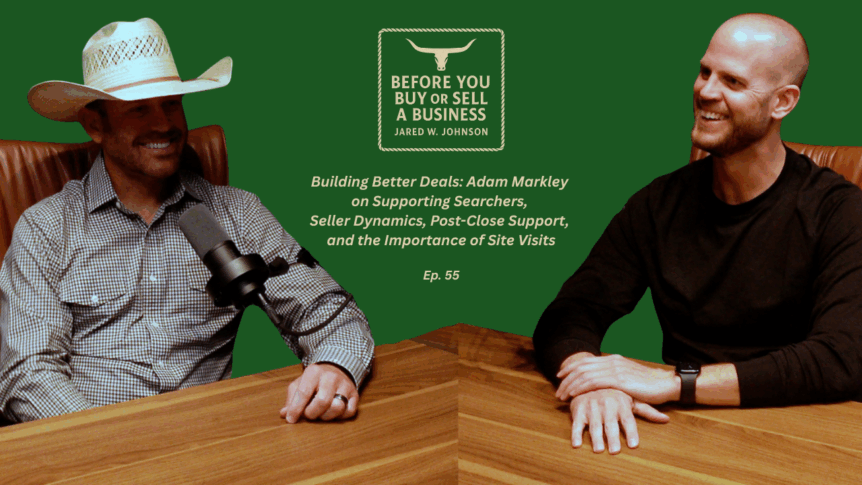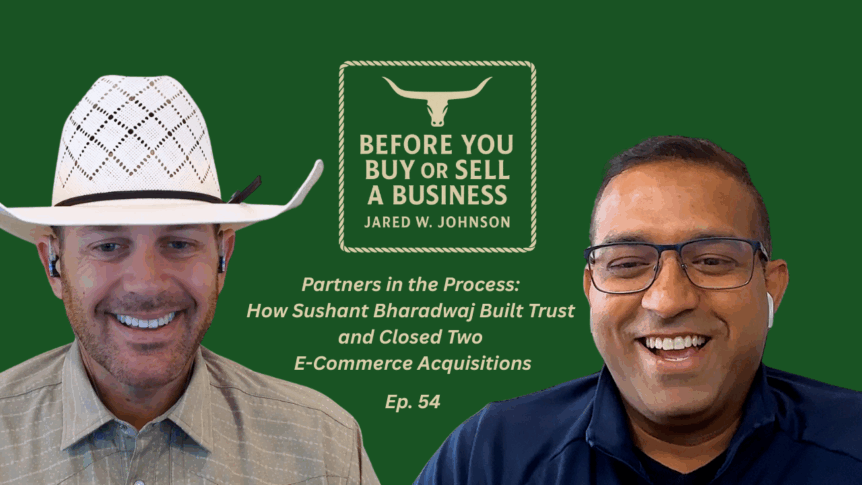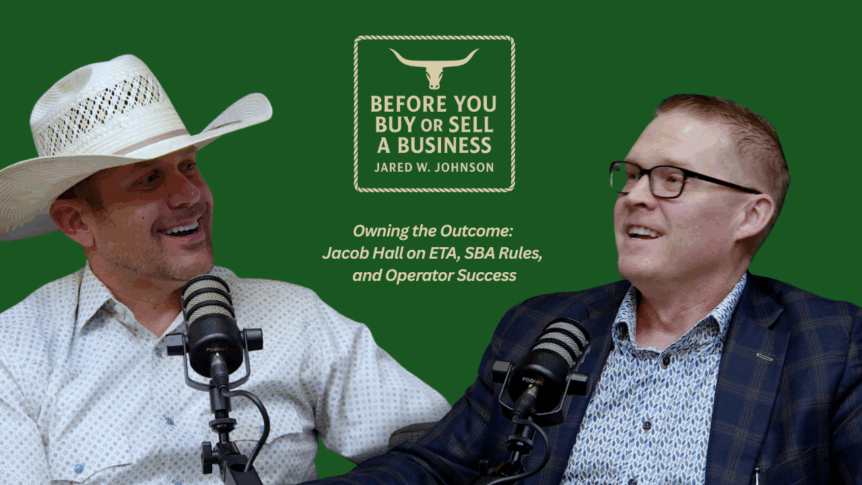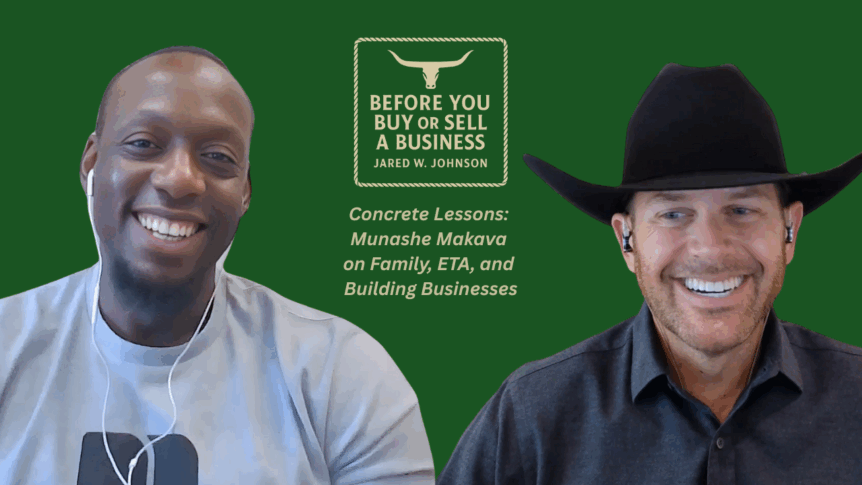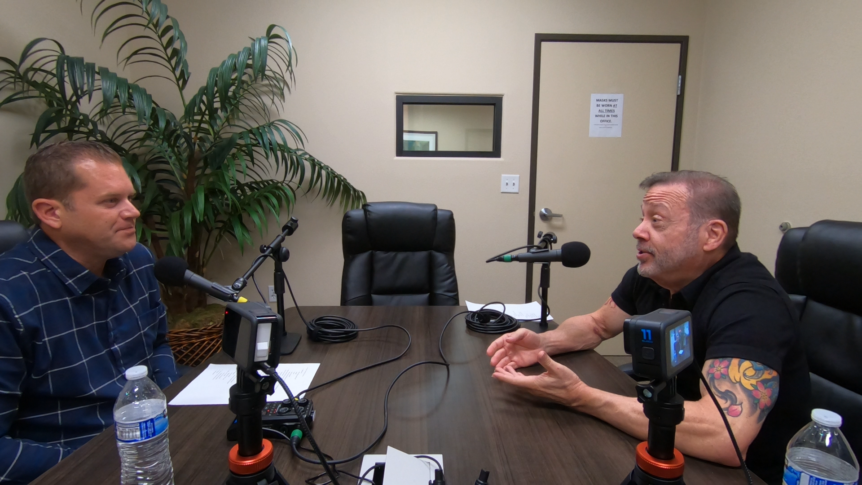Before You Buy or Sell a Business Podcast – Hosted by Jared Johnson
What kind of person should actually buy a business, and just as important, who should not? In Episode 50 of the Before You Buy or Sell a Business podcast, host Jared W. Johnson sits down with David Barnett, a former business broker, small business advisor, and author, to explore what separates prepared buyers from those who get in over their heads.
Barnett shares candid insights from his years in finance and brokerage, explaining why the flood of “buy a business with no money down” content online has created a wave of unprepared buyers. He breaks down the common mistakes first time buyers make, why due diligence requires more than reviewing a profit and loss statement, and the mindset every future operator needs before taking on ownership.
Why Not Everyone Should Buy a Small Business
Barnett makes it clear that business ownership is not for everyone. While the idea of acquiring a company may sound appealing, not all buyers have the right skillset, capital, or tolerance for risk.
Too many buyers approach acquisitions thinking the process is easy because of what they have read online. Barnett cautions against this, noting that running a small business demands grit, operational know-how, and the ability to handle uncertainty. Without those qualities, new owners can quickly find themselves in financial and emotional trouble.
For aspiring entrepreneurs, Barnett recommends building real-world management experience first and accumulating enough capital to withstand unexpected shocks. For those who lack these foundations, business ownership may not be the right path, at least not yet.
The Red Flags Buyers Overlook
Throughout the episode, Barnett highlights the financial blind spots that many new buyers miss during due diligence:
- Missing Balance Sheets: Too many buyers stop at the income statement and never review the balance sheet. This can hide liabilities, outdated assets, or deferred expenses.
- CapEx Underestimation: Barnett warns that SDE (Seller’s Discretionary Earnings) and EBITDA do not account for future capital expenditures. Ignoring equipment replacement or deferred maintenance creates massive surprises post-acquisition.
- Operating Capital Needs: Even profitable businesses require cash to run day-to-day. Buyers who fail to budget for working capital often find themselves scrambling immediately after closing.
Barnett explains that understanding a deal means more than looking at revenue and profit. Buyers must account for future investments, cash flow cycles, and hidden risks that are not obvious in the marketing package.
The CapEx Trap and Why Financials Do Not Tell the Whole Story
One of Barnett’s strongest warnings is about the CapEx trap. Many buyers assume that if a business is producing healthy EBITDA or SDE, the company is in good shape. In reality, businesses often need significant equipment upgrades, repairs, or replacements that will eat into those earnings.
This is where inexperienced buyers fall short. Without considering long-term capital needs, they overpay for businesses and underestimate ongoing expenses. Barnett emphasizes the importance of digging deeper: ask when equipment was purchased, how it has been maintained, and what replacement costs will look like in the coming years.
Why Price Is Not the Most Important Factor
Another common misconception is that the deal price is the ultimate decision-maker. Barnett flips this idea on its head. He explains that what truly matters is understanding what you are actually buying.
A “cheap” business might come with deferred maintenance, outdated systems, or shaky customer relationships. On the other hand, a well-priced business with strong fundamentals may be worth the premium. The key is aligning the deal with your own capabilities and risk profile.
Who Should Buy a Business
At the heart of the episode is Barnett’s answer to the question: Who should actually buy a business?
According to him, the right buyer is someone who:
- Has relevant industry or management experience
- Possesses capital reserves beyond just the down payment
- Understands that risk is inherent and there is no such thing as a risk-free acquisition
- Is willing to put in the effort to operate, not just own, a business
Barnett stresses that risk varies from buyer to buyer. A deal that looks safe to one operator may be extremely risky for another. Self-awareness, preparation, and clarity are essential before committing to ownership.
Key Takeaways from the Episode
- Buying or selling a business requires serious due diligence and experience
- First time buyers often underestimate risk and overestimate deal quality
- Financials must be reviewed beyond the P&L with balance sheets, CapEx, and working capital taken into account
- Not all listings are good opportunities and some are outright traps
- The right guidance can prevent costly mistakes and prepare buyers for long-term success
Why This Conversation Matters
With the rise of Entrepreneurship Through Acquisition (ETA) and increasing attention on SBA loans for small business acquisitions, more first time buyers are entering the market than ever before. This episode of Before You Buy or Sell a Business cuts through the noise, offering practical insights from someone who has been on both sides of the transaction.
If you are thinking about buying a business, this episode is an essential listen. Barnett’s advice can save buyers from rushing into the wrong deal and help them build the foundation needed for success as an operator.
Listen to the Full Episode
You can stream Episode 50, Who Should Buy a Business? David Barnett on Picking the Right Deal and Becoming an Operator, on the Before You Buy or Sell a Business podcast or wherever you listen to podcasts.
For more resources on business acquisitions, SBA financing, and ETA strategy, visit Jared W. Johnson’s website.

